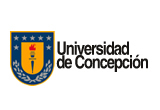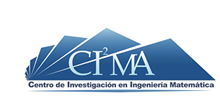Preprint 2019-43
Gabriel N. Gatica, Bryan Gomez-Vargas, Ricardo Ruiz-Baier:
A posteriori error analysis of mixed finite element methods for stress-assisted diffusion problems
Abstract:
We develop the a posteriori error analysis for mixed-primal and fully-mixed finite element methods approximating the stress-assisted diffusion of solutes in elastic materials. The systems are formulated in terms of stress, rotation and displacements for the elasticity equations, whereas the nonlinear diffusion is cast using either solute concentration (leading to a four-field mixed-primal formulation), or the triplet concentration - concentration gradient - and nonlinear diffusive flux (yielding the six-field fully-mixed variational formulation). We have addressed the well-posedness of these formulations in previous works, also introducing discretisations based on PEERS or Arnold-Falk-Winther elements for the linear elasticity and either Lagrange, or Lagrange - Raviart-Thomas - Lagrange triplets for the approximation of the diffusion equation. Here we advocate the derivation of two efficient and reliable residual-based a posteriori error estimators focusing on the two-dimensional case. The proofs of reliability depend on adequately formulated inf-sup conditions in combination with a Helmholtz decomposition, and they also rely on the local approximation features of Clement and Raviart-Thomas interpolations. The efficiency of the estimators results from classical inverse and discrete trace inequalities together with localisation techniques based on edge- and triangle-bubble functions. The theoretical properties of these error indicators are confirmed through numerical tests, also serving to illustrate the performance of the adaptive mesh refinement.
This preprint gave rise to the following definitive publication(s):
Gabriel N. GATICA, Bryan GOMEZ-VARGAS, Ricardo RUIZ-BAIER: A posteriori error analysis of mixed finite element methods for stress-assisted diffusion problems. Journal of Computational and Applied Mathematics, vol. 409, Art. Num. 114144, (2022).


